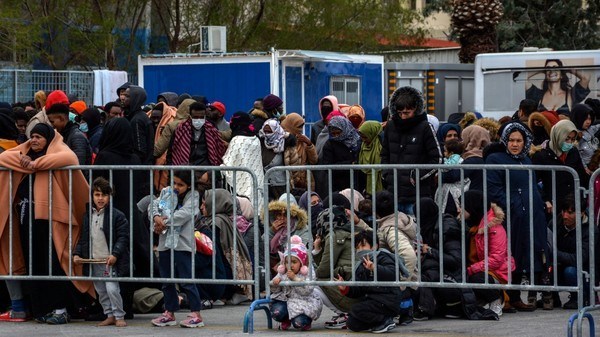One year on from the adoption of the proposal for a New Pact on Migration and Asylum, the Commission presented today another migration package including an EU action plan against migrant smuggling and a Communication on the application of an directive preventing illegal employment in the EU.
Recent figures confirm that the COVID-19 pandemic had a significant impact on migration in 2020, with the number of both legal and irregular arrivals decreasing compared to 2019 because of cancellation of flights.
However, the decrease in arrivals in 2020 was temporary, as available 2021 data point towards a year-on-year increase. This is the case, in particular, for irregular arrivals on the Central Mediterranean, Western Mediterranean and Eastern borders routes (from Belarus).
In his presentation of the package at today’s press conference (29 September), Vice-President Margaritis Schinas referred to old and new migration routes that put pressure on some of the member states and on EU’s external borders.
The recent developments, especially at the borders with Belarus and because of the situation in Afghanistan, show the need for a sustainable European asylum and migration framework, he said. It is an irony that we have all we need but that it still is beyond our reach.
“The Pact proposals, if adopted, could greatly improve Member States' ability to deal with a whole range of issues currently faced. And if we have learnt anything in recent years, it should be that flying solo on these issues is not an option. Now is the time to come together around solutions.”
Preventing and fighting migrant smuggling is a key strategic objective of the pact. The Commission intends among others to develop “Anti-Smuggling Operational Partnerships with concrete tools as part of comprehensive, balanced, tailor-made and mutually beneficial migration partnerships, further building on trust and mutual cooperation.”
90 % of those trying to enter EU irregularly are helped by criminal smuggling networks, said Ylva Johansson, Commissioner for Home Affairs, but she also underlined that irregular state-sponsored migration is a new phenomena, as exemplified by the Belarusian regime.
Until now the Commission’s spokespersons have tried to reconcile the protection of EU’s external borders against the “instrumentalization” of migrants with the obligation of member states to respect international law and assess asylum applications on an individual basis. Both Schinas and Johansson seemed to divert from this principled position.
“Member states have a right to reject irregular migrants,” said Johansson. “They cannot be allowed to enter the EU”. Schinas added that it would be impossible to handle asylum applications of irregular migrants that have been bussed to the border by the regime in Minsk. He seemed not to exclude the possibility of “pushbacking” irregular migrants, as Lithuania and other member states have proposed.
Does EU face a moral dilemma when on the one hand protecting the borders and on the other applying the Geneva convention on asylum?
“It’s not a dilemma,” Commissioner Johansson told The Brussels Times. “We don’t have open borders. We shall both defend our external borders against irregular migration into the EU and rally behind our values and legislation. It’s possible to reconcile both.” Belarus is a desperate regime and EU cannot be soft against it.
“It would be dangerous to depict it as two incompatible ways,” she said and added that Poland and the Baltic countries have already received thousands of irregular migrants. “It doesn’t imply that we have open borders. It’s important to put down your foot against a country like Belarus which tries to abuse the right to asylum.”
Vice-President Schinas said that Europe will always be an asylum destination but the EU has an obligation to fight migrant smuggling.
The victims are the migrants that have left countries at war, paid much money to smugglers, been flown to Belarus and then bussed to the border by the regime. Even if they manage to cross the border, they cannot be sure that they will be allowed to apply for asylum.
M. Apelblat
The Brussels Times

